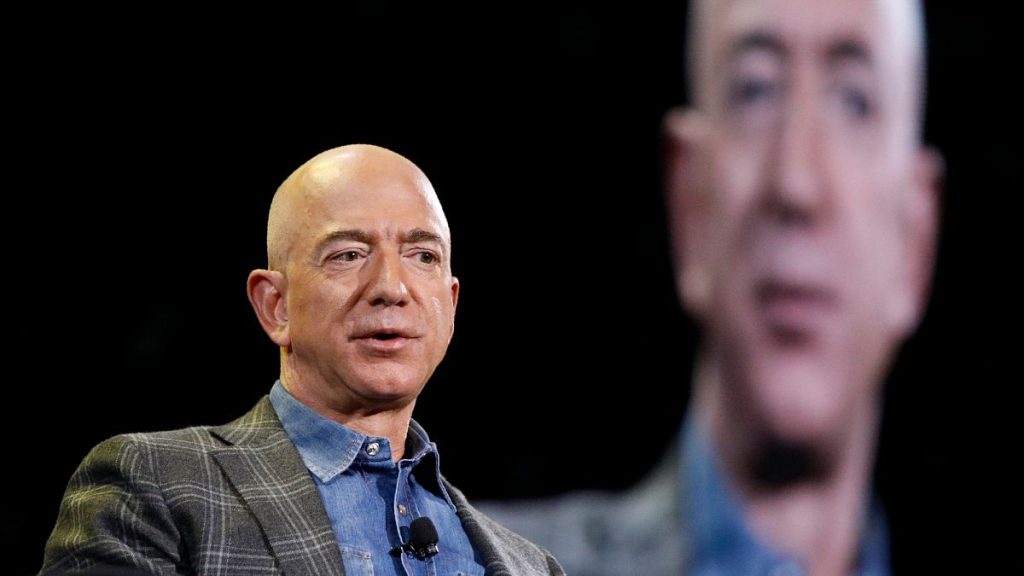In a controversial decision, Jeff Bezos, the owner of the Washington Post and founder of Amazon, has restricted the types of opinions that will be featured in the newspaper’s opinion section. This move aims to align with two main themes: “personal liberties and free markets,” leaving little room for opposing viewpoints, according to Bezos’s statements on social media. The decision has caused significant backlash, resulting in several resignations within the newspaper’s editorial team and a wave of subscription cancellations, all occurring in the politically charged atmosphere ahead of the upcoming presidential election.
| Article Subheadings |
|---|
| 1) Bezos’s New Vision for the Opinion Section |
| 2) Reaction from Within the Washington Post |
| 3) The Implications of Restricting Opinions |
| 4) External Reactions and Criticism |
| 5) The Wider Political Context |
Bezos’s New Vision for the Opinion Section
In a significant change to the editorial direction of the Washington Post, Jeff Bezos announced that the opinion pages will now focus primarily on themes that promote “personal liberties and free markets.” This update was issued through social media, where Bezos indicated the shift is intended to reflect his belief that the American success story is fundamentally linked to these two values. He posited that the broad spectrum of opinions once provided by newspapers is now adequately filled by the internet, suggesting a narrowed focus is more appropriate for the current media landscape. While the papier will still cover various topics, those opinions that do not align with these two pillars will not find a home in the Post’s editorial section.
Reaction from Within the Washington Post
The sweeping changes prompted an immediate response from within the Washington Post’s editorial team. Chief among those affected was David Shipley, the opinion editor, who chose to resign despite being offered the chance to stay in his role. Shipley commented post-resignation that he believed a genuine commitment to editorial integrity would require an unequivocal approval of the new direction. This sentiment echoes the frustrations of several journalists who have echoed similar sentiments, leading to their departure from the publication. Molly Roberts, David E. Hoffman, and Mili Mitra are among the notable names who chose to resign after the paper distanced itself from its anticipated endorsement of presidential candidate Kamala Harris.
The Implications of Restricting Opinions
Experts and observers have raised concerns about what this restrictive approach to opinion journalism could mean for the Washington Post and the public discourse at large. Martin Baron, a former editor of the Post, suggested that Bezos’s decisions appear motivated by a mix of corporate interests and political affiliations, dubbing the transition “craven.” Baron highlighted that limiting opinions undermines the fundamental role of newspapers in promoting diverse viewpoints. Critics have pointed out that a singular editorial line could alienate readers, take away from the journalistic integrity of the publication, and potentially limit readers’ access to a broader discourse on critical issues facing the nation.
External Reactions and Criticism
The decision has not only stirred controversy within the Post but also garnered attention from political figures and commentators. Senator Bernie Sanders took to social media to lambast the move, branding it as a clear example of oligarchy in media ownership and a further shift toward right-wing perspectives. His perspective mirrors that of other critics who see Bezos’s approach as indicative of a broader trend where media companies cater to wealthy interests at the expense of balanced journalism. On the flip side, reactions from conservative circles have showcased support, with some figures interpreting the shift as a necessary corrective to what they perceive as liberal bias in traditional media.
The Wider Political Context
Bezos’s decision comes amid a politically charged atmosphere, particularly ahead of a presidential election. The reluctance of the Post to endorse any presidential candidate this election cycle has drawn scrutiny, especially since the paper has historically provided endorsements in prior elections. Comments from fellow billionaires like Elon Musk, who praised the direction taken by Bezos, further complicate the narrative, as they introduce questions about the potential intertwining of wealth and power in influencing public opinion narratives. The evident shift in editorial policy is seen by many as a tactical maneuver to navigate the volatile political landscape and secure Bezos’s broader business interests.
| No. | Key Points |
|---|---|
| 1 | Jeff Bezos restricts Washington Post’s opinion section to focus on personal liberties and free markets. |
| 2 | Several high-profile journalists resign in protest against the new policy. |
| 3 | Concerns arise over the implications for journalistic integrity and public discourse. |
| 4 | Criticism mounts from political figures, including Senator Bernie Sanders. |
| 5 | The decision reflects Bezos’s approach to navigating the current political environment. |
Summary
The decision by Jeff Bezos to limit the opinion content at the Washington Post has prompted significant debate concerning media ownership and the integrity of public discourse. As the newspaper prepares for a tumultuous election cycle, the ramifications of this policy shift may not only impact its own journalists but also contribute to a wider conversation about the role of media in a democracy and the dynamic between wealth and political power. The evolving landscape of opinion journalism poses critical questions for readers, publishers, and stakeholders alike.
Frequently Asked Questions
Question: What are the main themes the Washington Post will now focus on in its opinion section?
The Washington Post will primarily focus on “personal liberties and free markets,” as stated by owner Jeff Bezos.
Question: What prompted the resignation of several journalists from the Post?
The resignations were prompted by the paper’s decision to restrict opinion content and its distancing from anticipated endorsements, particularly regarding political candidates.
Question: How has the public reacted to Bezos’s decisions regarding the Washington Post?
The public response has been polarized, with significant criticism from some political figures and media critics, while others, particularly conservative voices, have expressed support for the new direction.


